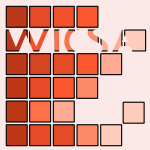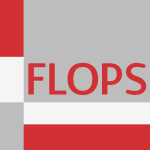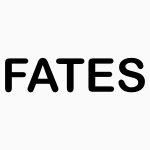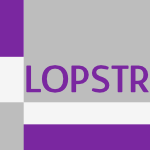77 papers:
 HCI-DE-2015-Moallem #question #user interface
HCI-DE-2015-Moallem #question #user interface- Concrete or Abstract User Interface? (AM), pp. 390–395.
 ECOOP-2015-RichardsNV #typescript
ECOOP-2015-RichardsNV #typescript- Concrete Types for TypeScript (GR, FZN, JV), pp. 76–100.
 CAV-2015-JeonQSF #adaptation #parallel #synthesis
CAV-2015-JeonQSF #adaptation #parallel #synthesis- Adaptive Concretization for Parallel Program Synthesis (JJ, XQ, ASL, JSF), pp. 377–394.
 ICLP-2015-Maher
ICLP-2015-Maher- Relating Concrete Argumentation Formalisms and Abstract Argumentation (MJM).
 ICST-2015-Holleis #development #embedded #industrial #testing #workflow
ICST-2015-Holleis #development #embedded #industrial #testing #workflow- Integrating Concrete Symbolic Testing with an Industrial Embedded Software Development Workflow (EJH), pp. 1–2.
 ISSTA-2015-ClappAA #data flow #mining #named #specification
ISSTA-2015-ClappAA #data flow #mining #named #specification- Modelgen: mining explicit information flow specifications from concrete executions (LC, SA, AA), pp. 129–140.
 ASE-2014-DingesA #execution #generative #using
ASE-2014-DingesA #execution #generative #using- Targeted test input generation using symbolic-concrete backward execution (PD, GAA), pp. 31–36.
 FSE-2014-MileaJK #abstraction #detection #refactoring #scalability
FSE-2014-MileaJK #abstraction #detection #refactoring #scalability- Vector abstraction and concretization for scalable detection of refactorings (NAM, LJ, SCK), pp. 86–97.
 ASE-2013-AvazpourGG #automation #model transformation #specification #tool support #using #visualisation
ASE-2013-AvazpourGG #automation #model transformation #specification #tool support #using #visualisation- Tool support for automatic model transformation specification using concrete visualisations (IA, JG, LG), pp. 718–721.
 SAS-2013-Roy #source code
SAS-2013-Roy #source code- From Concrete Examples to Heap Manipulating Programs (SR), pp. 126–149.
 STOC-2013-Ben-SassonCGT #on the #performance #proving
STOC-2013-Ben-SassonCGT #on the #performance #proving- On the concrete efficiency of probabilistically-checkable proofs (EBS, AC, DG, ET), pp. 585–594.
 SAC-PL-J-2011-DinkelakerEM13 #compilation #embedded #incremental #syntax
SAC-PL-J-2011-DinkelakerEM13 #compilation #embedded #incremental #syntax- Incremental concrete syntax for embedded languages with support for separate compilation (TD, ME, MM), pp. 615–632.
 ICSE-2013-MeneelyL #re-engineering
ICSE-2013-MeneelyL #re-engineering- Vulnerability of the day: concrete demonstrations for software engineering undergraduates (AM, SL), pp. 1154–1157.
 CASE-2012-HamPL #empirical #performance
CASE-2012-HamPL #empirical #performance- Experiment for attaching performance of a fan and vacuum pad on grooved vertical concrete walls (YBH, CDP, BJL), pp. 1010–1015.
 MSR-2012-HuHHW #android #architecture #dependence
MSR-2012-HuHHW #android #architecture #dependence- The build dependency perspective of Android’s concrete architecture (WH, DH, AH, KW), pp. 128–131.
 WICSA-2011-Selic #abstraction
WICSA-2011-Selic #abstraction- Making Abstraction Concrete (BS), p. 1.
 ITiCSE-2011-OliveiraMR #learning #problem #programming
ITiCSE-2011-OliveiraMR #learning #problem #programming- From concrete to abstract?: problem domain in the learning of introductory programming (OLO, AMM, NTR), pp. 173–177.
 CSMR-2011-AnquetilL #legacy
CSMR-2011-AnquetilL #legacy- Legacy Software Restructuring: Analyzing a Concrete Case (NA, JL), pp. 279–286.
 SFM-2011-JurjensOSMHI #evolution #modelling #specification
SFM-2011-JurjensOSMHI #evolution #modelling #specification- Modelling Secure Systems Evolution: Abstract and Concrete Change Specifications (JJ, MO, HS, LM, SHH, SI), pp. 504–526.
 SAC-2011-DinkelakerEM #embedded #incremental #syntax
SAC-2011-DinkelakerEM #embedded #incremental #syntax- Incremental concrete syntax for embedded languages (TD, ME, MM), pp. 1309–1316.
 LDTA-2011-EconomopoulosF #higher-order #syntax
LDTA-2011-EconomopoulosF #higher-order #syntax- Higher-order transformations with nested concrete syntax (GRE, BF), p. 4.
 ISSTA-2011-PasareanuRV #execution #symbolic computation
ISSTA-2011-PasareanuRV #execution #symbolic computation- Symbolic execution with mixed concrete-symbolic solving (CSP, NR, WV), pp. 34–44.
 FLOPS-2010-Kiselyov #ml
FLOPS-2010-Kiselyov #ml- Delimited Control in OCaml, Abstractly and Concretely: System Description (OK), pp. 304–320.
 SLE-2010-KatsKV #ambiguity #interactive #metaprogramming #source code #syntax
SLE-2010-KatsKV #ambiguity #interactive #metaprogramming #source code #syntax- Interactive Disambiguation of Meta Programs with Concrete Object Syntax (LCLK, KTK, EV), pp. 327–336.
 DAC-2009-NanshiS #abstraction #constraints #refinement
DAC-2009-NanshiS #abstraction #constraints #refinement- Constraints in one-to-many concretization for abstraction refinement (KN, FS), pp. 569–574.
 SAC-2009-DemailleLS #abstract syntax tree #effectiveness #named #parsing #using
SAC-2009-DemailleLS #abstract syntax tree #effectiveness #named #parsing #using- TWEAST: a simple and effective technique to implement concrete-syntax AST rewriting using partial parsing (AD, RL, BS), pp. 1924–1929.
 DAC-2008-HaldarSPDG #c++ #modelling #verification
DAC-2008-HaldarSPDG #c++ #modelling #verification- Construction of concrete verification models from C++ (MH, GS, SP, BD, AG), pp. 942–947.
 DATE-2008-NanshiS
DATE-2008-NanshiS- Improved Visibility in One-to-Many Trace Concretization (KN, FS), pp. 819–824.
 SOFTVIS-2008-ParduhnSW #algorithm #graph #using #visualisation
SOFTVIS-2008-ParduhnSW #algorithm #graph #using #visualisation- Algorithm visualization using concrete and abstract shape graphs (SAP, RS, RW), pp. 33–36.
 ICEIS-AIDSS-2008-AccianiFMM #classification #feature model #search-based #statistics
ICEIS-AIDSS-2008-AccianiFMM #classification #feature model #search-based #statistics- Genetic Feature Selection and Statistical Classification of Voids in Concrete Structure (GA, GF, DM, DM), pp. 231–234.
 ICPR-2008-YamaguchiH #detection #image
ICPR-2008-YamaguchiH #detection #image- Improved percolation-based method for crack detection in concrete surface images (TY, SH), pp. 1–4.
 ECMDA-FA-2008-Espinazo-PaganTM #approach #metamodelling
ECMDA-FA-2008-Espinazo-PaganTM #approach #metamodelling- Metamodel Syntactic Sheets: An Approach for Defining Textual Concrete Syntaxes (JEP, MMT, JGM), pp. 185–199.
 ECMDA-FA-2008-Fondement #syntax #visual notation
ECMDA-FA-2008-Fondement #syntax #visual notation- Graphical Concrete Syntax Rendering with SVG (FF), pp. 200–214.
 ECMDA-FA-2008-GoldschmidtBU #classification #syntax
ECMDA-FA-2008-GoldschmidtBU #classification #syntax- Classification of Concrete Textual Syntax Mapping Approaches (TG, SB, AU), pp. 169–184.
 SLE-2008-Goldschmidt #approach #incremental #repository #towards
SLE-2008-Goldschmidt #approach #incremental #repository #towards- Towards an Incremental Update Approach for Concrete Textual Syntaxes for UUID-Based Model Repositories (TG), pp. 168–177.
 ISSTA-2008-PasareanuMBGLPP #execution #symbolic computation #testing
ISSTA-2008-PasareanuMBGLPP #execution #symbolic computation #testing- Combining unit-level symbolic execution and system-level concrete execution for testing NASA software (CSP, PCM, DHB, KGB, MRL, SP, MP), pp. 15–26.
 TestCom-FATES-2008-FaivreGGT #refinement
TestCom-FATES-2008-FaivreGGT #refinement- Test Purpose Concretization through Symbolic Action Refinement (AF, CG, PLG, AT), pp. 184–199.
 ESOP-2007-BlanquiHW #data type #implementation #on the
ESOP-2007-BlanquiHW #data type #implementation #on the- On the Implementation of Construction Functions for Non-free Concrete Data Types (FB, TH, PW), pp. 95–109.
 PEPM-2007-RooverDBND #behaviour #logic #query #similarity #source code #using
PEPM-2007-RooverDBND #behaviour #logic #query #similarity #source code #using- Behavioral similarity matching using concrete source code templates in logic queries (CDR, TD, JB, CN, LD), pp. 92–101.
 ICEIS-SAIC-2007-LokeLIK #adaptation #approach #smarttech #towards #workflow
ICEIS-SAIC-2007-LokeLIK #adaptation #approach #smarttech #towards #workflow- Adaptive Workflows for Smart Devices — A Concrete Approach Towards Device Failures (SWL, SL, MI, SK), pp. 191–197.
 MoDELS-2007-KrahnRV #syntax
MoDELS-2007-KrahnRV #syntax- Integrated Definition of Abstract and Concrete Syntax for Textual Languages (HK, BR, SV), pp. 286–300.
 MoDELS-2007-KrahnRV #syntax
MoDELS-2007-KrahnRV #syntax- Integrated Definition of Abstract and Concrete Syntax for Textual Languages (HK, BR, SV), pp. 286–300.
 CAV-2007-BeyerHT #configuration management #convergence #model checking #program analysis #verification
CAV-2007-BeyerHT #configuration management #convergence #model checking #program analysis #verification- Configurable Software Verification: Concretizing the Convergence of Model Checking and Program Analysis (DB, TAH, GT), pp. 504–518.
 ICPR-v3-2006-FujitaMH #detection
ICPR-v3-2006-FujitaMH #detection- A Method for Crack Detection on a Concrete Structure (YF, YM, YH), pp. 901–904.
 MoDELS-2006-Baar #modelling #syntax #visual notation
MoDELS-2006-Baar #modelling #syntax #visual notation- Correctly Defined Concrete Syntax for Visual Modeling Languages (TB), pp. 111–125.
 MoDELS-2006-MullerFFHSGJ #analysis #modelling #syntax #synthesis
MoDELS-2006-MullerFFHSGJ #analysis #modelling #syntax #synthesis- Model-Driven Analysis and Synthesis of Concrete Syntax (PAM, FF, FF, MH, RS, SG, JMJ), pp. 98–110.
 MoDELS-2006-Baar #modelling #syntax #visual notation
MoDELS-2006-Baar #modelling #syntax #visual notation- Correctly Defined Concrete Syntax for Visual Modeling Languages (TB), pp. 111–125.
 MoDELS-2006-MullerFFHSGJ #analysis #modelling #syntax #synthesis
MoDELS-2006-MullerFFHSGJ #analysis #modelling #syntax #synthesis- Model-Driven Analysis and Synthesis of Concrete Syntax (PAM, FF, FF, MH, RS, SG, JMJ), pp. 98–110.
 GPCE-2006-JouaultBK #domain-specific language #named #specification
GPCE-2006-JouaultBK #domain-specific language #named #specification- TCS: a DSL for the specification of textual concrete syntaxes in model engineering (FJ, JB, IK), pp. 249–254.
 WICSA-2005-Riva #architecture #logic #re-engineering
WICSA-2005-Riva #architecture #logic #re-engineering- Bridging the Concrete and Logical Domains for Software Architecture Reconstruction (CR), pp. 263–264.
 IFM-2005-GodefroidK #model checking
IFM-2005-GodefroidK #model checking- Software Model Checking: Searching for Computations in the Abstract or the Concrete (PG, NK), pp. 20–32.
 ECMDA-FA-2005-FondementB #metamodelling #syntax
ECMDA-FA-2005-FondementB #metamodelling #syntax- Making Metamodels Aware of Concrete Syntax (FF, TB), pp. 190–204.
 GPCE-2005-BravenboerVVV #ambiguity #metaprogramming #source code #syntax #type system
GPCE-2005-BravenboerVVV #ambiguity #metaprogramming #source code #syntax #type system- Generalized Type-Based Disambiguation of Meta Programs with Concrete Object Syntax (MB, RV, JJV, EV), pp. 157–172.
 ICSE-2005-EbertM #nondeterminism #requirements
ICSE-2005-EbertM #nondeterminism #requirements- Requirements Uncertainty: Influencing Factors and Concrete Improvements (CE, JDM), pp. 553–560.
 CAV-2005-PasareanuPV #model checking #refinement
CAV-2005-PasareanuPV #model checking #refinement- Concrete Model Checking with Abstract Matching and Refinement (CSP, RP, WV), pp. 52–66.
 ICPR-v2-2004-ZhangN
ICPR-v2-2004-ZhangN- Surface Tortuosity and its Application to Analyzing Cracks in Concrete (TZ, GN), pp. 851–854.
 SEKE-2004-CorreaW #approach #specification #transaction #validation
SEKE-2004-CorreaW #approach #specification #transaction #validation- Specification and Validation of Transactional Business Software: An Approach Based on the Exploration of Concrete Scenarios (ALC, CMLW), pp. 294–299.
 OOPSLA-2004-BravenboerV #domain-specific language #strict #syntax
OOPSLA-2004-BravenboerV #domain-specific language #strict #syntax- Concrete syntax for objects: domain-specific language embedding and assimilation without restrictions (MB, EV), pp. 365–383.
 LOPSTR-2003-FischerV #prolog #syntax #synthesis
LOPSTR-2003-FischerV #prolog #syntax #synthesis- Adding Concrete Syntax to a Prolog-Based Program Synthesis System (Extended Abstract) (BF, EV), pp. 56–58.
 GPCE-2002-Visser #metaprogramming #syntax
GPCE-2002-Visser #metaprogramming #syntax- Meta-programming with Concrete Object Syntax (EV), pp. 299–315.
 IJCAR-2001-HaarslevMW #approach #logic #motivation
IJCAR-2001-HaarslevMW #approach #logic #motivation- The Description Logic ALCNHR+ Extended with Concrete Domains: A Practically Motivated Approach (VH, RM, MW), pp. 29–44.
 IJCAR-2001-Lutz #logic
IJCAR-2001-Lutz #logic- NEXPTIME-Complete Description Logics with Concrete Domains (CL), pp. 45–60.
 ITiCSE-1998-Astrachan #education
ITiCSE-1998-Astrachan #education- Concrete teaching: hooks and props as instructional technology (OLA), pp. 21–24.
 ESOP-1998-ChatterjeeRL #complexity #exception
ESOP-1998-ChatterjeeRL #complexity #exception- Complexity of Concrete Type-Inference in the Presence of Exceptions (RC, BGR, WL), pp. 57–74.
 ICSE-1997-Wile #syntax
ICSE-1997-Wile #syntax- Abstract Syntax from Concrete Syntax (DSW), pp. 472–480.
 OOPSLA-1995-AgesenH #comparison #feedback #object-oriented #optimisation #type inference
OOPSLA-1995-AgesenH #comparison #feedback #object-oriented #optimisation #type inference- Type Feedback vs. Concrete Type Inference: A Comparison of Optimization Techniques for Object-Oriented Languages (OA, UH), pp. 91–107.
 OOPSLA-1995-SmithMU #flexibility #self #user interface
OOPSLA-1995-SmithMU #flexibility #self #user interface- The Self-4.0 User Interface: Manifesting a System-wide Vision of Concreteness, Uniformity and Flexibility (RBS, JM, DU), pp. 47–60.
 OOPSLA-1994-PlevyakC #object-oriented #precise #type inference
OOPSLA-1994-PlevyakC #object-oriented #precise #type inference- Precise Concrete Type Inference for Object-Oriented Languages (JP, AAC), pp. 324–340.
 ECOOP-1992-DodaniT #named #object-oriented #programming #type system
ECOOP-1992-DodaniT #named #object-oriented #programming #type system- ACTS: A Type System for Object-Oriented Programming Based on Abstract and Concrete Classes (MD, CST), pp. 309–328.
 LICS-1992-Curien #algorithm #data type
LICS-1992-Curien #algorithm #data type- Observable Algorithms on Concrete Data Structures (PLC), pp. 432–443.
 ICSE-1990-ChoppyK #development #prototype #specification
ICSE-1990-ChoppyK #development #prototype #specification- Mixing Abstract and Concrete Modules: Specification, Development and Prototyping (CC, SK), pp. 173–184.
 LICS-1990-Lewis #logic
LICS-1990-Lewis #logic- A Logic of Concrete Time Intervals (Extended Abstract) (HRL), pp. 380–389.
 RTA-1989-KaplanC
RTA-1989-KaplanC- Abstract Rewriting with Concrete Operations (SK, CC), pp. 178–186.
 LFP-1988-AasaPS #functional #syntax
LFP-1988-AasaPS #functional #syntax- Concrete Syntax for Data Objects in Functional Languages (AA, KP, DS), pp. 96–105.
 STOC-1982-Bach #algorithm #performance
STOC-1982-Bach #algorithm #performance- Fast Algorithms under the Extended Riemann Hypothesis: A Concrete Estimate (EB), pp. 290–295.
 ICALP-1979-DuncanY #algorithm #correctness #proving
ICALP-1979-DuncanY #algorithm #correctness #proving- Studies in Abstract/Concrete Mappings in Proving Algorithm Correctness (AGD, LY), pp. 218–229.
 ICALP-1972-Wand #approach #recursion
ICALP-1972-Wand #approach #recursion- A Concrete Approach to Abstract Recursion Definitions (MW), pp. 331–341.
 HCI-DE-2015-Moallem #question #user interface
HCI-DE-2015-Moallem #question #user interface ECOOP-2015-RichardsNV #typescript
ECOOP-2015-RichardsNV #typescript CAV-2015-JeonQSF #adaptation #parallel #synthesis
CAV-2015-JeonQSF #adaptation #parallel #synthesis ICLP-2015-Maher
ICLP-2015-Maher ICST-2015-Holleis #development #embedded #industrial #testing #workflow
ICST-2015-Holleis #development #embedded #industrial #testing #workflow ISSTA-2015-ClappAA #data flow #mining #named #specification
ISSTA-2015-ClappAA #data flow #mining #named #specification ASE-2014-DingesA #execution #generative #using
ASE-2014-DingesA #execution #generative #using FSE-2014-MileaJK #abstraction #detection #refactoring #scalability
FSE-2014-MileaJK #abstraction #detection #refactoring #scalability ASE-2013-AvazpourGG #automation #model transformation #specification #tool support #using #visualisation
ASE-2013-AvazpourGG #automation #model transformation #specification #tool support #using #visualisation SAS-2013-Roy #source code
SAS-2013-Roy #source code STOC-2013-Ben-SassonCGT #on the #performance #proving
STOC-2013-Ben-SassonCGT #on the #performance #proving SAC-PL-J-2011-DinkelakerEM13 #compilation #embedded #incremental #syntax
SAC-PL-J-2011-DinkelakerEM13 #compilation #embedded #incremental #syntax ICSE-2013-MeneelyL #re-engineering
ICSE-2013-MeneelyL #re-engineering CASE-2012-HamPL #empirical #performance
CASE-2012-HamPL #empirical #performance MSR-2012-HuHHW #android #architecture #dependence
MSR-2012-HuHHW #android #architecture #dependence WICSA-2011-Selic #abstraction
WICSA-2011-Selic #abstraction ITiCSE-2011-OliveiraMR #learning #problem #programming
ITiCSE-2011-OliveiraMR #learning #problem #programming CSMR-2011-AnquetilL #legacy
CSMR-2011-AnquetilL #legacy SFM-2011-JurjensOSMHI #evolution #modelling #specification
SFM-2011-JurjensOSMHI #evolution #modelling #specification SAC-2011-DinkelakerEM #embedded #incremental #syntax
SAC-2011-DinkelakerEM #embedded #incremental #syntax LDTA-2011-EconomopoulosF #higher-order #syntax
LDTA-2011-EconomopoulosF #higher-order #syntax ISSTA-2011-PasareanuRV #execution #symbolic computation
ISSTA-2011-PasareanuRV #execution #symbolic computation FLOPS-2010-Kiselyov #ml
FLOPS-2010-Kiselyov #ml SLE-2010-KatsKV #ambiguity #interactive #metaprogramming #source code #syntax
SLE-2010-KatsKV #ambiguity #interactive #metaprogramming #source code #syntax DAC-2009-NanshiS #abstraction #constraints #refinement
DAC-2009-NanshiS #abstraction #constraints #refinement SAC-2009-DemailleLS #abstract syntax tree #effectiveness #named #parsing #using
SAC-2009-DemailleLS #abstract syntax tree #effectiveness #named #parsing #using DAC-2008-HaldarSPDG #c++ #modelling #verification
DAC-2008-HaldarSPDG #c++ #modelling #verification DATE-2008-NanshiS
DATE-2008-NanshiS SOFTVIS-2008-ParduhnSW #algorithm #graph #using #visualisation
SOFTVIS-2008-ParduhnSW #algorithm #graph #using #visualisation ICEIS-AIDSS-2008-AccianiFMM #classification #feature model #search-based #statistics
ICEIS-AIDSS-2008-AccianiFMM #classification #feature model #search-based #statistics ICPR-2008-YamaguchiH #detection #image
ICPR-2008-YamaguchiH #detection #image ECMDA-FA-2008-Espinazo-PaganTM #approach #metamodelling
ECMDA-FA-2008-Espinazo-PaganTM #approach #metamodelling ECMDA-FA-2008-Fondement #syntax #visual notation
ECMDA-FA-2008-Fondement #syntax #visual notation ECMDA-FA-2008-GoldschmidtBU #classification #syntax
ECMDA-FA-2008-GoldschmidtBU #classification #syntax SLE-2008-Goldschmidt #approach #incremental #repository #towards
SLE-2008-Goldschmidt #approach #incremental #repository #towards ISSTA-2008-PasareanuMBGLPP #execution #symbolic computation #testing
ISSTA-2008-PasareanuMBGLPP #execution #symbolic computation #testing TestCom-FATES-2008-FaivreGGT #refinement
TestCom-FATES-2008-FaivreGGT #refinement ESOP-2007-BlanquiHW #data type #implementation #on the
ESOP-2007-BlanquiHW #data type #implementation #on the PEPM-2007-RooverDBND #behaviour #logic #query #similarity #source code #using
PEPM-2007-RooverDBND #behaviour #logic #query #similarity #source code #using ICEIS-SAIC-2007-LokeLIK #adaptation #approach #smarttech #towards #workflow
ICEIS-SAIC-2007-LokeLIK #adaptation #approach #smarttech #towards #workflow MoDELS-2007-KrahnRV #syntax
MoDELS-2007-KrahnRV #syntax MoDELS-2007-KrahnRV #syntax
MoDELS-2007-KrahnRV #syntax CAV-2007-BeyerHT #configuration management #convergence #model checking #program analysis #verification
CAV-2007-BeyerHT #configuration management #convergence #model checking #program analysis #verification ICPR-v3-2006-FujitaMH #detection
ICPR-v3-2006-FujitaMH #detection MoDELS-2006-Baar #modelling #syntax #visual notation
MoDELS-2006-Baar #modelling #syntax #visual notation MoDELS-2006-MullerFFHSGJ #analysis #modelling #syntax #synthesis
MoDELS-2006-MullerFFHSGJ #analysis #modelling #syntax #synthesis MoDELS-2006-Baar #modelling #syntax #visual notation
MoDELS-2006-Baar #modelling #syntax #visual notation MoDELS-2006-MullerFFHSGJ #analysis #modelling #syntax #synthesis
MoDELS-2006-MullerFFHSGJ #analysis #modelling #syntax #synthesis GPCE-2006-JouaultBK #domain-specific language #named #specification
GPCE-2006-JouaultBK #domain-specific language #named #specification WICSA-2005-Riva #architecture #logic #re-engineering
WICSA-2005-Riva #architecture #logic #re-engineering IFM-2005-GodefroidK #model checking
IFM-2005-GodefroidK #model checking ECMDA-FA-2005-FondementB #metamodelling #syntax
ECMDA-FA-2005-FondementB #metamodelling #syntax GPCE-2005-BravenboerVVV #ambiguity #metaprogramming #source code #syntax #type system
GPCE-2005-BravenboerVVV #ambiguity #metaprogramming #source code #syntax #type system ICSE-2005-EbertM #nondeterminism #requirements
ICSE-2005-EbertM #nondeterminism #requirements CAV-2005-PasareanuPV #model checking #refinement
CAV-2005-PasareanuPV #model checking #refinement ICPR-v2-2004-ZhangN
ICPR-v2-2004-ZhangN SEKE-2004-CorreaW #approach #specification #transaction #validation
SEKE-2004-CorreaW #approach #specification #transaction #validation OOPSLA-2004-BravenboerV #domain-specific language #strict #syntax
OOPSLA-2004-BravenboerV #domain-specific language #strict #syntax LOPSTR-2003-FischerV #prolog #syntax #synthesis
LOPSTR-2003-FischerV #prolog #syntax #synthesis GPCE-2002-Visser #metaprogramming #syntax
GPCE-2002-Visser #metaprogramming #syntax IJCAR-2001-HaarslevMW #approach #logic #motivation
IJCAR-2001-HaarslevMW #approach #logic #motivation IJCAR-2001-Lutz #logic
IJCAR-2001-Lutz #logic ITiCSE-1998-Astrachan #education
ITiCSE-1998-Astrachan #education ESOP-1998-ChatterjeeRL #complexity #exception
ESOP-1998-ChatterjeeRL #complexity #exception ICSE-1997-Wile #syntax
ICSE-1997-Wile #syntax OOPSLA-1995-AgesenH #comparison #feedback #object-oriented #optimisation #type inference
OOPSLA-1995-AgesenH #comparison #feedback #object-oriented #optimisation #type inference OOPSLA-1995-SmithMU #flexibility #self #user interface
OOPSLA-1995-SmithMU #flexibility #self #user interface OOPSLA-1994-PlevyakC #object-oriented #precise #type inference
OOPSLA-1994-PlevyakC #object-oriented #precise #type inference ECOOP-1992-DodaniT #named #object-oriented #programming #type system
ECOOP-1992-DodaniT #named #object-oriented #programming #type system LICS-1992-Curien #algorithm #data type
LICS-1992-Curien #algorithm #data type ICSE-1990-ChoppyK #development #prototype #specification
ICSE-1990-ChoppyK #development #prototype #specification LICS-1990-Lewis #logic
LICS-1990-Lewis #logic RTA-1989-KaplanC
RTA-1989-KaplanC LFP-1988-AasaPS #functional #syntax
LFP-1988-AasaPS #functional #syntax STOC-1982-Bach #algorithm #performance
STOC-1982-Bach #algorithm #performance ICALP-1979-DuncanY #algorithm #correctness #proving
ICALP-1979-DuncanY #algorithm #correctness #proving ICALP-1972-Wand #approach #recursion
ICALP-1972-Wand #approach #recursion









